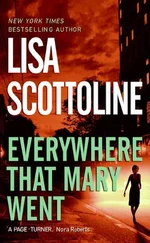Ah. Okay , I said.
What’s even better is finally being a widow.
The woman started laughing and laughing and laughing so much I felt like I had to laugh, too, so I did and then I realized we were laughing at how her husband was dead, which really didn’t seem so funny, and I think we realized that at the same time, and we both stopped laughing and there was that deeply quiet moment after two people have laughed too much and we let that quiet moment stay for the rest of the drive. During that silence I thought of that night when my husband and I were having one of the arguments about the way we argue and I went into the kitchen to get a glass of water but instead picked up a knife because I was thinking about stabbing myself in the face — not actually considering stabbing myself in the face, but thinking that it would be a physical expression of how I felt — and I picked up a chef’s knife, our heavy good one that I used for everything from cutting soft fruit to impaling pumpkins and I looked at it, laughed a noiseless laugh, put the chef’s knife down, poured myself a glass of water, and drank it fast, until I choked a little, and I went back to arguing with my husband and he didn’t know about my face-stabbing thoughts and it made me even angrier that he didn’t know about my face-stabbing thoughts, that he couldn’t just intuit these things, look into my eyes and know that the way he spoke to me was a plain waste of our life — but here in the car with the widowed stranger I didn’t have to feel any of those feelings anymore because I had left my husband and our arguments and my chef’s knife and I had come to this country where I could laugh, so gently, gently laugh at things that were actually not funny.
There was that night that my husband had looked at me like he wasn’t sure if we knew each other or not, like we had met at a party years ago and now that we’d come across each other in the cereal aisle, he couldn’t quite remember who I was. This look probably had something to do with the fact that I was crying and he hadn’t seen me do that since the afternoon we met and that one time on our honeymoon. But this wasn’t like that — this was six-thirty on a weeknight, aisles packed with clicking heels and crumpled suits.
He said, Wheaties? , and I opened my mouth to say it didn’t matter, but had started sobbing instead.
Elly … what are you doing? Elly … Elyria …
He stood close, shielding me from other people’s eyes, and I was happy he didn’t try to touch me because that would have made it worse.
Elyria…?
It’s just — nothing — I just — I think I’m tired .
You’re tired?
Isn’t that okay? Am I not a person? Can’t I be tired?
I was talking through my teeth and everyone around us was silent.
Let’s just go home , he said, so we left with no groceries and he made us box pasta with jar sauce and we didn’t speak and I got into bed even though it was barely eight and my husband sat beside the bed like he was well and I was ill and I began to feel that way — my illness became truer and truer, grew large, filled the room, filled my body, filled my recent and deeper past. When had I become so ill? Had I always been this way?
Whatever it is, you can tell me, you know?
The wisp-thin crack in the ceiling reminded me of bones and spines and the way they give up, eventually, and what happens to a body when it gives in to time — Better not say anything about that, I thought; I rolled to face the wall because I did not care for the here or the now and I wondered whether we were who we thought we were, if we were actually married or just in a continuous situation with each other and I wondered if my want to get up and leave him was an indigenous want, something I had birthed, or whether this want was foreign, a splinter, something to pry out.
But I couldn’t talk about any of that, so I rolled back to him and said, Tell me again.
And he said, Oh, is that what this is all about?
And I said, I don’t know.
It was true I had this need every autumn, reliable as dried leaves.
She was wearing a light blue shirt , he said. She was holding a paper coffee cup. She put the cup down on my desk, put her bag on the chair beside my desk, opened the bag, and took out the papers. She handed them to me. She asked me to check over them.
Do you remember her shoes?
The red ones. The same red sneakers she always wore.
And her hair? Did she have it up?
It was down and uncombed. It was in her face a little. She looked tired. She looked out the window behind my desk while she spoke. We didn’t make eye contact. She told me she would come get the papers tomorrow.
But she must have known that she wouldn’t come get the papers tomorrow, unless she hadn’t yet decided about tomorrow, and if she had really said she was coming to get the papers tomorrow maybe that meant the whole thing had been an accident, or did it mean she had acted on some fleeting thought that wasn’t what she really believed, or did it mean nothing? I have never really stopped thinking of how the smartest person I knew had, after much thought, decided that life was not worth it — that she’d be better off not living — and how was I supposed to live after that?
After some time my husband reached over to hold my hand, which reminded me that at least there was this, at least we still had hands that remembered how to love each other, two bone-and-flesh flaps that hadn’t complicated their simple love by speaking or thinking or being disappointed or having memories. They just held and were held and that is all. Oh, to be a hand.
Do you want to talk about her now?
And he knew I meant his mother, that it was his turn to try to get near the loss that he couldn’t get away from, those thoughts that came back each autumn just to die for him again, to remind him of what had happened, of how it felt.
Once she didn’t pick me up at school and I walked home and when I got there it was dark and she hadn’t made dinner but she said, You’re late for dinner , which I thought was funny because I was nine and didn’t realize how sick she was. I told her I had walked home from school and she asked why my dad hadn’t picked me up, and I said, I don’t have a dad, remember? And she said, Oh, that’s right , and I asked her why she was on the floor, and she told me she was tired, that she was too tired to get up.
I knew what he’d say next, but I always listened intensely, as if I was trying to memorize his pain so I could re-create it once he was gone or dead or dead and gone, because I thought, at the time, that my husband’s loss was what I had really fallen in love with, and maybe that loss was locked up in my husband like a prison and this was our once-a-year meeting and so I had to press myself against the Plexiglas to feel the blood and body heat of his loss, stare hard at the loss so I could remember how its face was shaped, the exact color of its eyes, something to get me through the next year of living with my husband and not his loss, but the lack of his loss, a bleached-out version of it, a numb heart that hosted something with a real pulse and wildness because my husband had only the most basic pulse and absolutely no wildness, but his loss was wild, was wild and filled with fast blood, and I could understand that angry bright red thing. I knew it was possible that I was not in love with a person but a person-shaped hole.
Kids can understand sometimes , he said. She was missing something. I don’t know what she was missing.
Читать дальше












